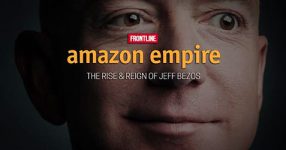The gripping documentary, Panic: The Untold Story of the 2008 Financial Crisis, offers a penetrating insight into the tumultuous events leading up to the 2008 US financial crisis and the heroic efforts to avert a catastrophic economic collapse. This documentary dives deep into the political and economic dynamics before, during, and after the 2008 market crash, featuring exclusive interviews with influential figures from the world of politics, entrepreneurship, and finance. Let’s embark on a journey to explore the untold story of this pivotal moment in our economic history.
Setting the Stage: The Pre-Crisis Atmosphere
As the financial storm brewed on the horizon, the documentary captures the tension and uncertainty prevailing in the lead-up to the 2008 financial crisis. We witness firsthand accounts from key players in the crisis, including notable politicians, entrepreneurs, and banking magnates. US Presidents George Bush and Barack Obama reflect on the challenges that unfolded during their transitions of power, providing unique perspectives on the crisis. Members of Congress, such as Nancy Pelosi and Judd Gregg, share their efforts to stabilize the economy and support a nation teetering on the brink of financial destitution.
The Faces Behind the Crisis: A Multifaceted Perspective
Panic: The Untold Story of the 2008 Financial Crisis offers an immersive experience, delving into the complexity of the socioeconomic landscape during those critical moments. With interviews featuring investment guru Warren Buffet and former Goldman Sachs head Lloyd Blankfein, the documentary peels back the layers of this intricate financial web. These interviews shed light on the factors that contributed to the crisis and the monumental efforts made by key figures to prevent a complete economic collapse.
Heroes in the Storm: Rescuing the American Economy
The documentary spotlights the unsung heroes of the 2008 financial crisis, including then-Treasury Secretary Henry Paulson, Federal Reserve Bank of New York President Timothy Geithner, and Federal Reserve Chair Ben Bernanke. These individuals faced daunting challenges and made critical decisions to save the United States from economic ruin. Their actions are examined in detail, providing a comprehensive understanding of the measures taken to avert catastrophe.
Legacy and Reflection: A Decade Later
Over a decade has passed since the events depicted in Panic, yet their impact resonates to this day. The documentary offers both entertainment and insight, even to those familiar with the outcome. It provides a unique opportunity to hear firsthand accounts of late-night phone calls and personal interactions that occurred during the crisis. Notably, the documentary maintains a neutral tone, adhering to the principles of objective journalism.
The Transformative Impact on Housing Discussions
The 2008 financial crisis reshaped the discourse around housing in the United States in several profound ways. First, the crisis ignited deep-seated populism on both ends of the political spectrum. The left witnessed a resurgence of socialism through movements like Occupy Wall Street, while the right saw the rise of the Tea Party, which shifted priorities away from finance and infrastructure.
Second, the crisis unveiled a longstanding mistrust of finance, rooted in the Jeffersonian and Jacksonian eras, which persists to this day. This suspicion highlights the enduring tension between economic growth and political rhetoric.
Lastly, the crisis ushered in an era of scarcity politics, with politicians across the spectrum exploiting fear and resentment. The left emphasizes wealth redistribution through taxes and entitlements, while the right focuses on immigration policies as a response to job insecurity. These trends have distorted the housing discussion, emphasizing entitlements over industry expertise and viewing economic growth as a source of suffering and homelessness.
In conclusion, Panic: The Untold Story of the 2008 Financial Crisis serves as a vital historical account of a pivotal moment in modern economics. It unveils the intricate web of factors that led to the crisis and the remarkable efforts made to prevent an economic catastrophe. As we reflect on the past, we must navigate the challenges of today’s housing discussions with a keen awareness of the lessons learned from this transformative event in our nation’s history.












